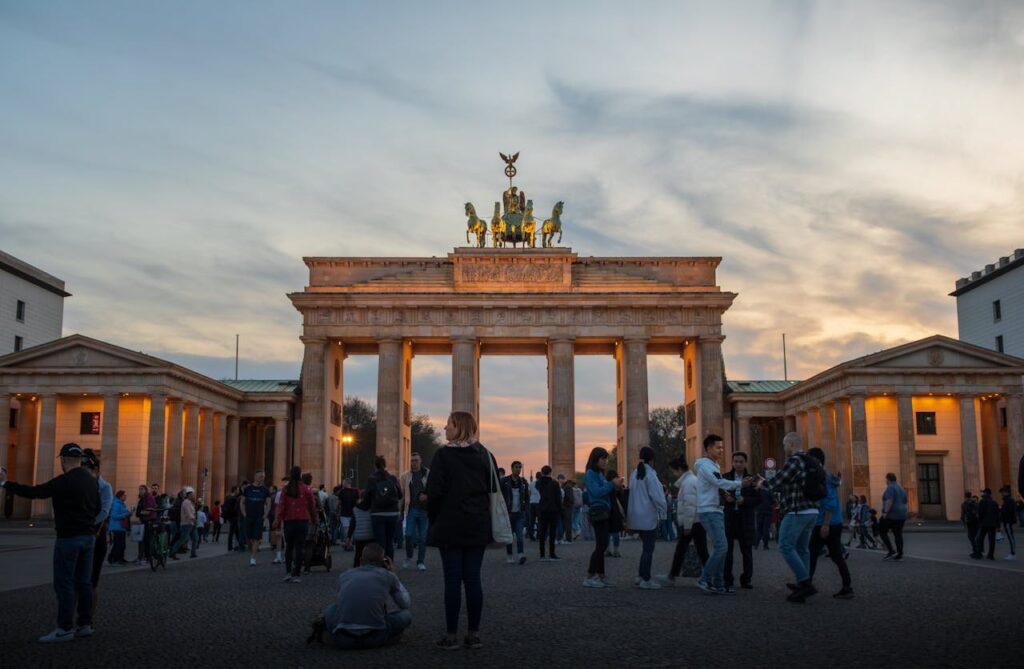Travel Tips for India’s Best Tourist Attractions
1. What is a Travel Trip?

A travel trip with Travel Guide involves moving from your usual location to explore incredible India tourist places. This journey includes discovering top India tourist attractions and visiting unique tourist spots in India. Whether you’re exploring vibrant tourist cities in India or uncovering hidden gems, each trip offers a chance to experience new cultures and enjoy a break from your routine. From the best places to visit in India to the best places to go in India, your travel adventure promises relaxation, discovery, and memorable experiences.
2. Types of Travel
Travel can be categorized in many ways, depending on your interests, budget, and purpose. Here are some common types:
- Leisure Travel: This is for relaxation and enjoyment. You might go to a beach, a hill station, or any place where you can unwind and have fun.
- Adventure Travel: For thrill-seekers, this type includes activities like trekking, bungee jumping, or scuba diving. It’s all about seeking excitement and pushing your limits.
- Cultural Travel: This involves visiting places rich in history and culture, such as historical monuments, museums, and art galleries. It’s a way to learn about different cultures and traditions.
- Business Travel: Traveling for work-related purposes, such as meetings, conferences, or client visits. It’s often more structured and may include short stays in various cities.
- Eco Tourism: Focused on visiting natural areas to conserve the environment and respect local cultures. Activities often include nature hikes, wildlife safaris, and Eco-friendly stays.
- Road Trips: Traveling by road, usually in a car or RV, allowing for flexibility in planning and exploring off-the-beaten-path locations.
3. Types of Travel Experiences
Travel experiences can vary greatly based on what you do and where you go. Here are some examples:
- Relaxing: Spending time at a beach resort, spa, or a quiet countryside to relax and rejuvenate.
- Exploratory: Exploring new cities, trying local foods, and experiencing local festivals. It’s about immersing yourself in new environments.
- Educational: Learning new things, such as attending workshops, classes, or historical tours. It’s about gaining knowledge and skills.
- Social: Connecting with new people, whether through group tours, social events, or meeting locals. It’s a way to expand your social network.
- Solo: Traveling alone, which can be a deeply personal and reflective experience. It often involves self-discovery and independence.
- Family: Trips taken with family members, which often include activities that cater to all ages, like theme parks or family-friendly resorts.
4. Travel Transportation
Transportation is a crucial part of travel. Here’s a breakdown of common options:
- Air Travel: Quick and efficient for long distances. Book flights in advance to get better deals, and remember to check baggage policies and security regulations.
- Train Travel: Great for scenic views and a more relaxed journey. It’s often used for medium to long distances, with options for different comfort levels.
- Bus Travel: Affordable and suitable for short to medium distances. Buses offer flexibility with routes and schedules, but can be less comfortable for long journeys.
- Car Travel: Provides the freedom to explore at your own pace. Ideal for road trips and accessing remote areas. Ensure your vehicle is in good condition and plan your route in advance.
- Bicycles and Motorbikes: Great for short distances and exploring local areas. They offer a more intimate experience with the surroundings.
- Boat and Ferry: Useful for traveling between islands or across bodies of water. Ensure you check schedules and book tickets early, especially during peak seasons.
5. Travel Checklist
Before you set off on your trip, it’s important to have a checklist to ensure you don’t forget anything. Here’s a basic one:
- Documents
- Passport/Visa (if traveling abroad)
- ID Proof (Domestic)
- Travel tickets (flight, train, bus)
- Hotel reservations
- Travel insurance
- Emergency contact numbers
- Money
- Cash in local currency
- Credit/Debit cards
- Travel money belt or pouch
- Clothing
- Weather-appropriate clothing
- Comfortable shoes
- Swimwear (if needed)
- Accessories like hats, sunglasses, and scarves
- Toiletries
- Toothbrush and toothpaste
- Shampoo and soap
- Deodorant
- Personal medications
- Electronics
- Mobile phone and charger
- Camera and accessories
- Laptop or tablet (if needed)
- Miscellaneous
- Travel guide or maps
- Reusable water bottle
- Snacks
- Books or entertainment
6. How to Plan Your Trip on a Budget
Traveling doesn’t have to break the bank. Here’s how you can plan a budget-friendly trip:
- Set a Budget: Determine how much you can spend on your trip. Include all possible expenses like transportation, accommodation, food, and activities.
- Book in Advance: Early bookings often lead to better deals on flights and hotels. Use comparison websites to find the best prices.
- Travel Off-Peak: Avoid peak seasons and holidays when prices are higher. Traveling during shoulder seasons can save you money and avoid crowds.
- Use Public Transport: Opt for buses or trains instead of taxis or rental cars. Public transport is usually cheaper and gives you a chance to experience local life.
- Eat Like a Local: Dine at local eateries instead of tourist spots. Street food and local markets often offer delicious and affordable meals.
- Find Free Activities: Many destinations offer free attractions like parks, museums, and walking tours. Research free things to do in your destination.
- Stay in Budget Accommodation: Look for hostels, guesthouses, or budget hotels. Platforms like Airbnb can also provide affordable lodging options.
- Pack Smart: Avoid extra baggage fees by packing efficiently. Bring only what you need and check luggage weight restrictions.
7. Travel Risk Identification
Traveling involves risks, but you can manage them with some preparation:
- Health Risks: Check if vaccinations are needed for your destination. Carry a basic medical kit with essentials like painkillers, bandages, and any personal medications.
- Safety Risks: Be aware of local safety conditions and avoid areas known for crime. Keep your belongings secure and be cautious of pickpockets.
- Weather Risks: Research the weather conditions for your destination and be prepared for extreme weather if necessary.
- Travel Scams: Be cautious of overly friendly strangers and deals that seem too good to be true. Use reputable services and verify information.
- Emergency Situations: Know the local emergency numbers and the location of your country’s embassy or consulate.
8. Travel Validation and Final Checks
Before you leave, ensure everything is in order:
- Check Your Documents: Verify that your passport and visa are valid, and double-check travel tickets and accommodation reservations.
- Confirm Travel Insurance: Ensure your travel insurance covers all necessary aspects, including health and travel disruptions.
- Review Your Itinerary: Go over your travel plans to ensure all bookings and activities are confirmed.
- Notify Your Bank: Inform your bank about your travel plans to avoid any issues with your credit or debit cards abroad.
- Secure Your Home: Arrange for someone to look after your home or ensure it is secure before leaving.
9. Travel Checklist Before Leaving Your Home
Before you head out the door, use this checklist to ensure you’ve covered everything:
- Home Security
- Lock all doors and windows.
- Set up any home security systems or alarms.
- Utilities
- Turn off lights, appliances, and any non-essential electronics.
- Adjust the thermostat if needed.
- Mail and Deliveries
- Arrange for mail collection or hold your mail with the postal service.
- Cancel or postpone any regular deliveries.
- Pet Care
- Make arrangements for pet care, whether it’s a pet-sitter, friend, or boarding facility.
- Emergency Contacts
- Leave emergency contact information with a friend or family member in case you need to be reached.
10. Checklist Before Leaving the Accommodation
Before checking out of your accommodation, ensure:
- Check Your Belongings
- Ensure you haven’t left any personal items behind.
- Check all drawers, closets, and under the bed.
- Clean Up
- Dispose of any trash and tidy up the space.
- Follow any checkout instructions provided by the accommodation.
- Confirm Checkout
- Verify that you’ve completed the checkout process as per the hotel or accommodation’s policy.
- Settle any outstanding bills or charges.
- Return Keys
- Return any keys or access cards to the front desk or as instructed.
- Final Inspection
- Do a final walk-through of your room or accommodation to ensure nothing is missed.
This comprehensive guide aims to make your travel experience smooth, enjoyable, and well-planned. Safe travels, and enjoy your journey!
